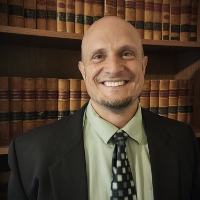 Wahkon White Collar Crime Lawyers, Minnesota
Wahkon White Collar Crime Lawyers, Minnesota
Sponsored Law Firm
-
 x
x

Click For More Info:
-
The Law Offices of Richard L. Cooper, P.A.
848 Brickell Avenue Suite 800 Miami, FL 33131» view mapDWI/DUI, Drug Trafficking, Felony Nationally Ranked Top 40 Under 40
With Richard L. Cooper you can expect a trusted confidant who will work diligently to fully understand your case and determine a road map to help you regain control of your life.
800-756-2781
Not enough matches for Wahkon White Collar Crime lawyer.
Below are all Wahkon Criminal lawyers.
Sponsored Lawyers
1-10 of 10 matches
Divorce & Family Law, Criminal, Real Estate, Estate, Bankruptcy & Debt
The Law Office of Attorney Edward R. Shaw is located in Brainerd, Minnesota and has been serving the Brainerd Lakes Area and surrounding counties with top quality legal services since 1996.
(more)Criminal, Divorce & Family Law, Accident & Injury
Proudly taking criminal, divorce & family, and accident & injury cases out of Brainerd, Minnesota and the surrounding areas.
(more)Criminal, Divorce & Family Law, Business, Estate, Litigation
Born in South Dakota, raised in Iowa, and now practicing law in Minnesota, Blake is the very definition of a Midwestern lawyer. He attended the University of Iowa, graduating in 2004 and received a bachelor's degree in English literature and philosophy. After college, he went to Drake Law School in Des Moines, Iowa. He graduated law school in 2010 and was admitted to the Iowa bar in the same year. Blake founded Lubinus Law Firm, PLLC in 2011, which became Lubinus & Merrill, P.L.C. in 2019, and practiced in the Des Moines metro area and surrounding rural counties for nearly ten years. His primary areas of focus were criminal defense, juvenile welfare, and family law. After the uncertainty and chaos brought on by the pandemic in 2020, Blake moved to Minnesota this past September to be closer to his family. He was hired on at Ed Shaw Law in April of 2021 and will be practicing primarily in the areas of probate, family law, and general civil litigation. In his free time, Blake plays live music at local venues, enjoys backpacking and kayaking, cheering on the Iowa Hawkeyes and Chicago Cubs, and spending time with his family. He is excited to join the Brainerd legal community and looks forward to getting to know his fellow colleagues.
(more)Criminal, Litigation, Personal Injury, Wrongful Death, Car Accident
Our experienced personal injury lawyers regularly represent clients suffering from minor, serious, and catastrophic injuries. We have extensive experience negotiating with insurance companies and litigating personal injury and wrongful death claims throughout Minnesota. Whether you were injured in an auto or truck accident, in a collision with an insured or underinsured driver, from a fall on dangerous or neglected property, as a result of medical malpractice, from a dog bite, or in a car accident involving alcohol, we will go to work for you immediately to seek the financial compensation you need and deserve.
(more)



 Richard L. Cooper Miami, FL
Richard L. Cooper Miami, FL AboutMiami Attorney at Law
AboutMiami Attorney at Law ServicesCriminal Defense
ServicesCriminal Defense




